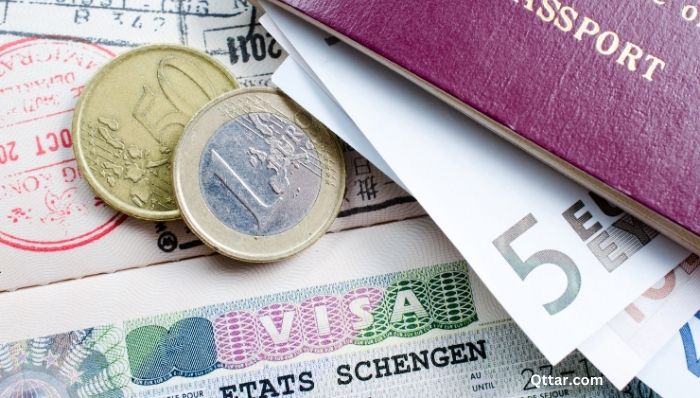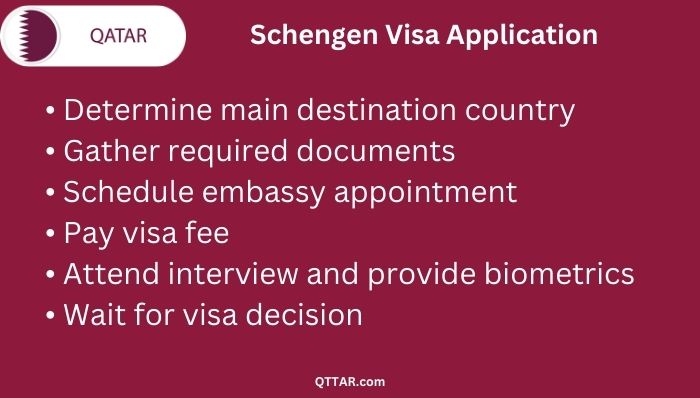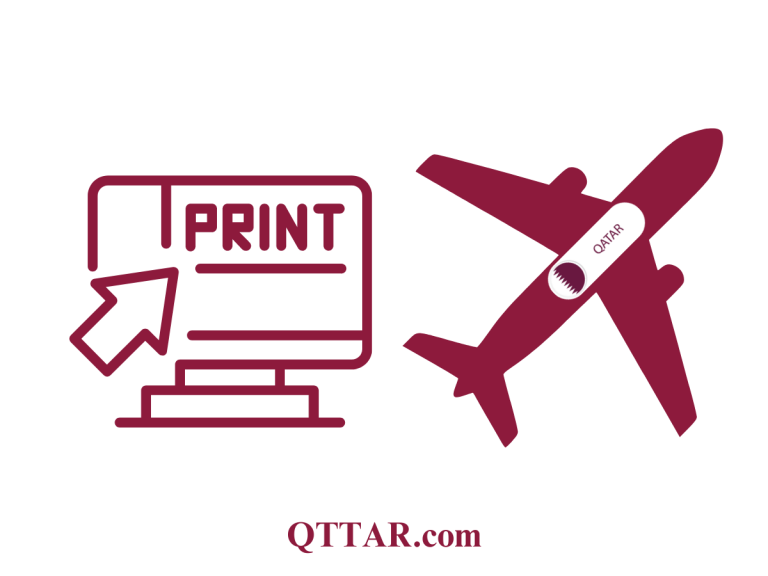How To Get Schengen Visa From Qatar?
Qatar residents seeking a Schengen visa must apply through the embassy or consulate of their main destination country in Doha. The process involves submitting required documents, paying fees, and attending an interview. Approval typically takes 15 days for a short-stay visa.
What is The Schengen Visa?
The Schengen visa is a unified visa system that allows holders to travel freely within the Schengen Area, which comprises 26 European countries. For residents of Qatar, obtaining a Schengen visa is essential for tourism, business trips, or short-term stays in Europe. The visa typically allows for stays of up to 90 days within a 180-day period.
Types of Schengen Visas Available
When applying for a Schengen visa from Qatar, it’s crucial to understand the different types available:
- Short-stay visa (Type C): This is the most common type, valid for stays up to 90 days within a 180-day period. It’s suitable for tourism, business, or visiting family and friends.
- Airport transit visa (Type A): Required for passing through the international transit areas of airports in Schengen countries. Not all nationalities need this visa.
- Long-stay visa (Type D): Issued by individual Schengen countries for stays exceeding 90 days. This is typically for study, work, or residence purposes.
For most Qatar residents, the short-stay visa (Type C) is the relevant option for tourism, business, or short visits.
Eligibility Criteria for Schengen Visa Applicants in Qatar
To be eligible for a Schengen visa while residing in Qatar, applicants must meet specific criteria:
- Valid passport: Your passport should be valid for at least three months beyond your planned return date and have at least two blank pages for visa stamps.
- Qatar residence status: You must be a legal resident of Qatar with a valid residence permit. This applies to both Qatari citizens and expatriates living in Qatar.
- Purpose of visit: You should have a clear and legitimate reason for visiting the Schengen Area. This could be tourism, business, medical treatment, or visiting family and friends.
- Financial means: You must demonstrate sufficient funds to cover your stay and return to Qatar. This typically includes bank statements, credit card statements, or a sponsor’s letter.
- Travel insurance: A valid travel insurance policy covering the entire Schengen Area is required. The policy should cover medical emergencies and repatriation, with a minimum coverage of €30,000.
- Accommodation arrangements: Proof of where you will stay during your visit, such as hotel reservations or an invitation letter from a host.
- Return ticket: Evidence of your intention to return to Qatar after your trip, usually in the form of a return flight booking.
- No security threats: Applicants should not be considered a threat to public policy, internal security, public health, or the international relations of any Schengen member state.
Meeting these basic requirements is crucial for a successful Schengen visa application from Qatar. However, fulfilling these criteria does not guarantee visa approval, as each application is assessed individually.
Before starting your Schengen visa application journey, it’s important to ensure that your current residency status in Qatar is valid and up-to-date. Residents can easily verify their status using the Qatar Visa Check service, which provides quick and accurate information about your visa status in Qatar. This step is crucial as a valid residency permit is a key requirement for Schengen visa applications from Qatar.
Step-by-Step Guide to Applying for a Schengen Visa from Qatar
Step 1: Determine the Appropriate Embassy or Consulate
The first step in applying for a Schengen visa from Qatar is to identify the correct embassy or consulate to submit your application. This depends on your travel plans:
- If you’re visiting only one Schengen country, apply at that country’s embassy or consulate in Qatar.
- If you’re visiting multiple Schengen countries, apply at the embassy of the country where you’ll spend the most time.
- If you’re spending equal time in multiple countries, apply through the embassy of the country you’ll enter first.
In Qatar, you’ll need to contact the respective embassy or consulate in Doha. Some countries may use external service providers like VFS Global for visa processing.
Step 2: Gather Required Documents
Collecting all necessary documents is crucial for a successful Schengen visa application. The standard documents required include:
- Completed and signed Schengen visa application form
- Recent passport-size photographs (3.5 cm x 4.5 cm) with white background
- Valid passport and copies of previous visas
- Qatar residence permit (original and copy)
- Proof of accommodation for your entire stay (hotel reservations or invitation letter)
- Flight itinerary or reservation (round trip)
- Travel insurance policy covering the Schengen area
- Proof of financial means (recent bank statements, credit card statements)
- Employment letter stating your position, salary, and approved leave, or business license if self-employed
- Detailed itinerary of your planned trip
- For business trips: invitation letter from the company in the Schengen area
- For students: letter from your educational institution in Qatar
Additional documents may be required depending on your specific situation and the embassy you’re applying to. Always check the embassy’s website for the most up-to-date requirements.
Step 3: Schedule an Appointment
Once you have gathered all necessary documents, the next step is to schedule your visa application appointment. This can typically be done through:
- The embassy’s official website
- A visa application center like VFS Global
- By phone or email, depending on the embassy’s procedures
When scheduling, choose a date that allows enough time for visa processing before your planned travel date. It’s advisable to apply at least 15 days before your intended departure, but not earlier than 6 months in advance.
Step 4: Pay the Visa Fee
The Schengen visa fee is standardized across all member countries. As of 2024, the fees are:
- Adults: €80
- Children between 6-12 years old: €40
- Children under 6 years: Free
Some categories of applicants may be eligible for reduced or waived fees, such as students or researchers. The fee is typically paid at the time of your appointment and is non-refundable, regardless of the visa decision.
Step 5: Attend the Visa Interview
On the day of your appointment, arrive at the embassy or visa application center with all your documents. Be prepared for a short interview where you may be asked questions about:
- Your travel plans and itinerary
- Your background and ties to Qatar
- Your financial situation
- Your intention to return to Qatar after your trip
Answer all questions honestly and consistently with the information provided in your application.
Step 6: Provide Biometric Data
If you haven’t provided biometric data for a Schengen visa in the last 59 months, you’ll need to submit your fingerprints and a digital photograph. This is a standard procedure for all applicants aged 12 and above.
Step 7: Wait for Processing
After submitting your application and biometrics, the waiting period begins. The standard processing time for a Schengen visa is about 15 calendar days, but it can take up to 30 days in some cases. During peak seasons or in complex cases, it may extend to 60 days.
During this time, you can track your application status through the method provided by the embassy or visa application center. Avoid making non-refundable travel arrangements until you receive your visa.

Tips for a Successful Schengen Visa Application from Qatar
To increase your chances of a successful Schengen visa application, consider the following tips:
- Apply well in advance: Submit your application at least 15 days before your planned trip to allow for processing time and potential delays.
- Be honest and consistent: Provide accurate information throughout your application and interview. Inconsistencies can lead to visa rejection.
- Demonstrate strong ties to Qatar: Show evidence of your job, family, or property in Qatar to prove your intention to return after your trip.
- Provide a detailed itinerary: A well-planned trip schedule can strengthen your application and demonstrate the purpose of your visit.
- Ensure financial stability: Your bank statements should show a stable income and sufficient funds for your trip. The amount should be proportional to the length and nature of your stay.
- Double-check your documents: Ensure all documents are complete, accurate, and meet the specific requirements of the embassy you’re applying to.
- Dress appropriately for the interview: Present yourself professionally to make a good impression during your visa appointment.
- Be prepared to explain your travel plans: Have clear reasons for your visit and be able to articulate them confidently during the interview.
- Maintain a good travel history: If you have previous visas and have complied with their terms, this can positively influence your application.
- Consider using a cover letter: While not always required, a well-written cover letter can provide additional context to your application and travel plans.
Did you now that Georgia offers visa on arrival for all Qatar Residents?
Common Reasons for Schengen Visa Rejections in Qatar
Understanding common reasons for visa rejections can help you avoid potential pitfalls in your application:
- Incomplete or incorrect application form: Ensure all fields are filled out accurately and completely.
- Insufficient or unclear purpose of visit: Clearly state and provide evidence for your reason for traveling to the Schengen area.
- Lack of proof of sufficient funds: Demonstrate that you have enough money to cover your entire trip and return to Qatar.
- Inadequate travel insurance coverage: Ensure your policy meets the minimum requirements and covers the entire Schengen area.
- Inconsistencies in the information provided: Make sure all details in your application, supporting documents, and interview responses align.
- Failure to demonstrate ties to Qatar: Provide strong evidence of your reasons to return to Qatar after your trip.
- Passport validity issues: Your passport must be valid for at least three months beyond your planned return date.
- Previous overstays or visa violations: A history of immigration violations can negatively impact your application.
- Perceived risk of overstaying or illegal immigration: The embassy must be convinced of your intention to return to Qatar.
- Incomplete travel itinerary or lack of return ticket: Provide a detailed plan of your trip and evidence of your return to Qatar.
By being aware of these common issues, you can take steps to strengthen your application and increase your chances of approval.
Schengen Visa Processing Time and Tracking
After submitting your application, the processing time for a Schengen visa from Qatar is typically:
- Standard processing: 15 calendar days
- Extended processing (in some cases): Up to 30 days
- Exceptional circumstances: Up to 60 days
To track your application status:
- Use the tracking service provided by the visa application center (if applicable)
- Contact the embassy or consulate directly using the provided reference number
- Check your email regularly for any updates or requests for additional information
It’s important to remain patient during this period and avoid making non-refundable travel arrangements until you receive your visa.
What to Do If Your Schengen Visa is Approved or Rejected
If Approved:
- Check all details on the visa sticker for accuracy, including dates and personal information
- Make copies of your visa for your records and to carry separately while traveling
- Plan your trip within the validity period of your visa, ensuring you don’t exceed the allowed stay
- Remember to carry all necessary documents when traveling, including your passport, visa, and travel insurance
If Rejected:
- Carefully read the rejection letter to understand the specific reasons for the denial
- Consider appealing the decision if you believe there was an error or misunderstanding
- Address the issues mentioned in the rejection letter and reapply with stronger documentation
- Seek assistance from a legal professional specializing in visa applications if needed
- If reapplying, ensure you provide new or additional information to strengthen your case

Frequently Asked Questions
- Can I apply for a Schengen visa if I’m not a Qatari citizen?
Yes, as long as you are a legal resident of Qatar with a valid residence permit. - How long in advance should I apply for my Schengen visa?
It’s recommended to apply at least 15 days before your planned trip, but not earlier than 6 months in advance. - Can I travel to other Schengen countries with a visa issued by one country?
Yes, a Schengen visa allows you to travel freely within the Schengen Area for the duration of your visa. - What if I need to change my travel dates after getting the visa?
Minor changes are usually acceptable as long as they fall within the visa’s validity period. For significant changes, contact the issuing embassy. - Can I extend my Schengen visa while in Europe?
Extensions are only granted in exceptional circumstances, such as force majeure or humanitarian reasons. - Do I need to book my flights and accommodation before applying for the visa?
It’s recommended to have tentative bookings that can be changed or cancelled if needed. - How much money do I need to show in my bank account for a Schengen visa?
The amount varies depending on the duration of your stay and the country you’re visiting. Generally, you should show at least €50-100 per day of your trip. - Can I apply for a multiple-entry Schengen visa from Qatar?
Yes, you can apply for a multiple-entry visa, but the decision depends on your travel history and the purpose of your visit. - What should I do if my passport expires while my Schengen visa is still valid?
You’ll need to apply for a new visa with your new passport, as the visa is linked to your passport number. - Can I work on a Schengen tourist visa?
No, working on a tourist visa is not permitted. If you intend to work, you need to apply for the appropriate work visa or permit.

Ammara Abdullah is an experienced writer and editor specializing in technology and digital trends. With over 5 years of experience, she produces insightful articles on emerging tech, consumer electronics, and digital culture. Ammara holds a degree in journalism and is passionate about making complex topics accessible to readers.






